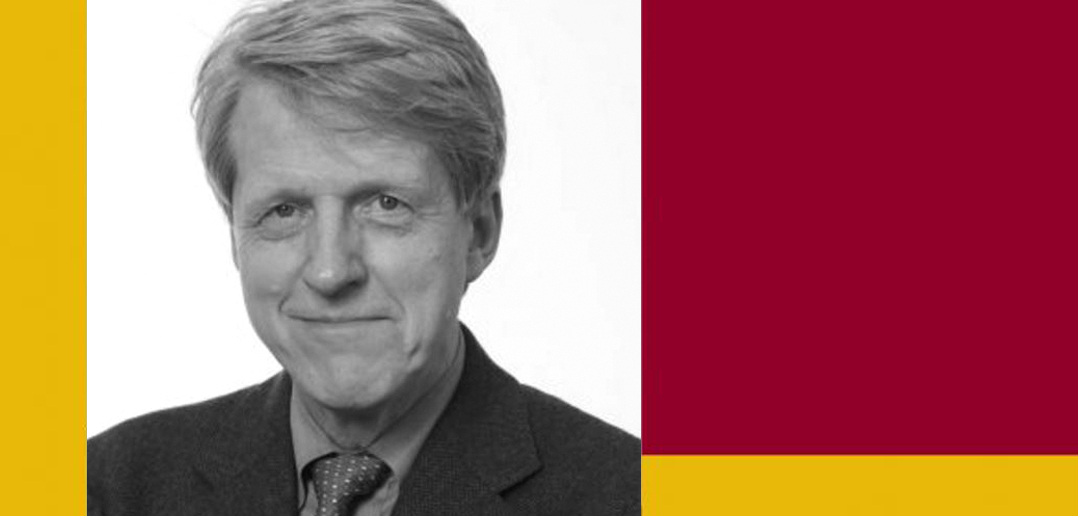
- This event has passed.
Narrative Economics: How Stories Go Viral and Drive Major Economic Events
Wednesday, July 1, 2020, 12 – 1 p.m.

Robert Shiller of Yale University, an economist, author, and Nobel Laureate discusses his book Narrative Economics. Shiller proposes a novel idea —the narratives that people believe and use to understand the world affect their economic behavior and in turn, affect the macroeconomy. Shiller argues that taking these psychological effects into account is a new frontier of economic research and he gives a number of examples of how we might think about these phenomena.
The first 200 attendees to login to the webinar will receive a free e-copy of Narrative Economics.
This event is co-sponsored by the Gabelli Center for Global Security Analysis, the CFA Society of New York, the Museum of American Finance, and Fixed Income Analyst Society Inc.
Agenda
12 p.m. Welcome Remarks
Donna Rapaccioli, Dean of the Gabelli School of Business
12:05 p.m. Presentation
Robert Shiller, Nobel Laureate, Economist, Author, Sterling Professor of
Economics and Professor of Finance at Yale University
12:25 p.m. Moderated Discussion
Moderator: Mario DiFiore, Assistant Dean and Finance Professor, Fordham
University; Editor, Journal of Financial Compliance; Ph.D. candidate, NEOMA
Business School
Q&A from audience
1 p.m. Closing Remarks
About Robert Shiller
Robert J. Shiller is the Sterling Professor of Economics for the department of economics and Cowles Foundation for Research in Economics, Yale University, and professor of finance and fellow at the International Center for Finance, Yale School of Management. He received his B.A. from the University of Michigan in 1967 and his Ph.D. in economics from the Massachusetts Institute of Technology in 1972. He has written on financial markets, financial innovation, behavioral economics, macroeconomics, real estate, statistical methods, and on public attitudes, opinions, and moral judgments regarding markets.
Shiller published many books includes: Market Volatility (MIT Press, 1989), a mathematical and behavioral analysis of price fluctuations in speculative markets; Macro Markets: Creating Institutions for Managing Society’s Largest Economic Risks (Oxford University Press, 1993), which proposes a variety of new risk-management contracts, such as futures contracts in national incomes or securities based on real estate that would permit the management of risks to standards of living; Irrational Exuberance (Princeton University Press, 2000, Broadway Books, 2001), an analysis and explication of speculative bubbles, with special reference to the stock market and real estate; The New Financial Order: Risk in the 21st Century (Princeton University Press, 2003), an analysis of an expanding role of finance, insurance, and public finance in our future; Subprime Solution: How the Global Financial Crisis Happened and What to Do about It, (Princeton University Press, 2008), an analysis of the housing and economic crisis and a plan of action against it; Finance and the Good Society (Princeton University Press, 2012); and Deception (Princeton University Press, 2015).
Shiller also co-authored two books with George Akerlof—Animal Spirits: How Human Psychology Drives the Economy and Why It Matters for Global Capitalism (Princeton University Press, 2009) and Phishing for Phools: The Economics of Manipulation.
His latest book is Narrative Economics: How Stories Go Viral and Drive Major Economic Events (Princeton University Press, 2019).
He cofounded Case Shiller Weis, Inc. in 1991, whose repeat-sales home price indices, developed originally with Karl E. Case, are now produced by CoreLogic and published as the S&P/Case-Shiller Home Price Indices. The Chicago Mercantile Exchange now maintains futures markets based on the S&P/Case-Shiller Indices. He was cofounder of MacroMarkets, LLC in 1999, which launched Macroshares, based on oil at the American Stock Exchange 2006-9, and on the S&P/Case-Shiller Home Price Indices at the New York Stock Exchange 2009-2010.
He has been research associate at the National Bureau of Economic Research since 1980, and has been co-organizer of NBER workshops including on behavioral finance with Richard Thaler 1991-2015, and on macroeconomics and individual decision making (behavioral macroeconomics) with George Akerlof 1994-2007.
He was awarded the Nobel Prize in Economic Sciences jointly with Eugene Fama and Lars Peter Hansen in 2013.
He served as vice president of the American Economic Association, 2005 and president of the Eastern Economic Association, 2006-07. He was elected president of the American Economic Association for 2016.
He writes a regular column “Finance in the 21st Century” for Project Syndicate, which publishes around the world, and “Economic View” for The New York Times.
About Mario J. DiFiore
Mario J. DiFiore is assistant dean and senior adviser in the Gabelli School of Business; director of the Corporate Compliance Institute; editor of the international, peer-reviewed Journal of Financial Compliance; and director for compliance and risk management course programs for Euromoney Financial Training (UK).
DiFiore joined the Gabelli administration in July 2010 after a 25-year career on Wall Street, which included time at the Federal Reserve Bank of New York. Prior to Fordham, he was director and co-global head of Deutsche Bank AG’s Compliance Training Group for the Commercial and Investment Bank, as well as the head of Americas Compliance Training. He was responsible for one of the largest financial regulation, risk, and compliance training programs on Wall Street.
In addition to his career at Deutsche Bank AG, DiFiore was an assistant director at Ten Squared LLP, a medium-sized hedge fund, as well as the continuing education manager for Prudential Securities. DiFiore began his career with the Federal Reserve Bank of New York where he spent over 12 years in the research and statistics, international affairs, and public information areas. While at the Federal Reserve, he was responsible for all financial and economic data for the weekly Federal Reserve press briefings, one of the most widely followed financial and economic weekly press briefings globally.
In addition to teaching at Fordham since 2002, DiFiore has taught finance, economics, and business courses at New York University, Baruch College of the City University of New York, Pace University, SUNY Empire State College, and the Mountbatten Institute at St. Mary’s College, U.K. He was also a debate champion and panelist at Cambridge University at the Cambridge Symposium on Economic Crime. He is a frequent speaker at industry events and at major corporations. As an international consultant in the areas of risk, compliance, behavioral finance, and financial markets, he has taught in Europe, Asia, Africa, North America, and the Middle East. DiFiore is a Ph.D. candidate, expected in 2020, from the NEOMA Business School in Paris, France, and received his M.B.A and bachelor’s in economics, summa cum laude, from Fordham.


